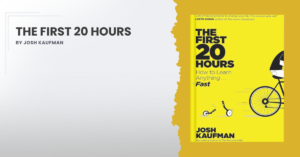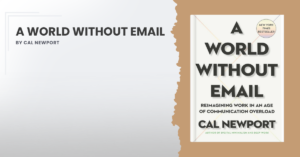Title: Creating Agile Business Systems with Reusable Knowledge
Author: Amit Mitra and Amar Gupta
Year: 2006
Pages: 384
This revolutionary book called Creating Agile Business Systems with Reusable Knowledge delves into the concept of Agile Business Systems and provides a step-by-step guide on how to implement them in your organization.
The authors of Creating Agile Business Systems with Reusable Knowledge describe how business knowledge can be identified, encapsulated, and shared using a modular approach to building business systems that parallels that of object-oriented software.
As a result, I gave this book a rating of 7.0/10.
For me, a book with a note 10 is one I consider reading again every year. Among the books I rank with 10, for example, is Dale Carnegie’s How to Win Friends and Influence People.
Overview of Creating Agile Business Systems
Creating Agile Business Systems is about supporting change through component technology, but it is not like most books on the subject. The book’s components are not standard IT components. Rather, they share knowledge components from which patterns of business knowledge are constructed.
Moreover, the IT systems used to automate and encapsulate business processes are unresponsive to the dynamic business environment. A modular approach to building business systems that parallels that of object-oriented software is presented.
Creating Agile Business Systems shows that systems are designed to adapt to changing market conditions and customer demands, which results in increased efficiency and effectiveness.
Creating Agile Business Systems emphasizes the importance of creating a culture of continuous improvement and experimentation within an organization.
It also stresses the need for a decentralized decision-making structure and cross-functional teams.
The authors provide a systematic approach for implementing Agile Business Systems, which includes understanding the current state, identifying improvement opportunities, and designing and implementing new systems.
My Book Highlights & Quotes
“… Agility and innovation are necessary to achieve global excellence and customer value in twenty-first-century business, yet most approaches to business process engineering sacrifice these in favor of operational efficiency and economics…”
“… Moreover, the IT systems used to automate and encapsulate business processes are unresponsive to the dynamic business environment. A modular approach to building business systems that parallels that of object-oriented software is presented…”
“… Agile Business Systems are designed to adapt to changing market conditions and customer demands, which results in increased efficiency and effectiveness…”
The book also covers various tools and techniques for measuring and monitoring the performance of Agile Business Systems.
It highlights the importance of leadership support and employee engagement in the successful implementation of Agile Business Systems.
It defines technology as automating and enabling change – a technology that will enable firms to remain competitive in a fast-changing, varied, and chaotic commercial world that will not tolerate tardiness.
Mitra and Gupta provide insight to close this gap – showing how innovation can be systematized with normalized patterns of information, how business processes and information systems may be tightly aligned, and how these processes and systems can be designed to automatically adapt to change by reconfiguring shared patterns of knowledge.
I am incredibly grateful that you have taken the time to read this post.
Do you want to get new content in your Email?
Do you want to explore more?
Check my main categories of content below:
- Agile
- Blog
- Book Notes
- Career
- Leadership
- Management
- Managing Yourself
- Productivity
- Project Management
- Technology
- Weekly Pulse
Navigate between the many topics covered in this website:
Agile Art Artificial Intelligence Blockchain Books Business Business Tales Career Coaching Communication Creativity Culture Cybersecurity Design DevOps Economy Emotional Intelligence Feedback Flow Focus Gaming Goals GPT Habits Health History Innovation Kanban Leadership Lean Life Managament Management Mentorship Metaverse Metrics Mindset Minimalism Motivation Negotiation Networking Neuroscience NFT Ownership Parenting Planning PMBOK PMI Politics Productivity Products Project Management Projects Pulse Readings Routines Scrum Self-Improvement Self-Management Sleep Startups Strategy Team Building Technology Time Management Volunteering Work
Do you want to check previous Book Notes? Check these from the last couple of weeks:
- Book Notes #123: The Personal MBA by Josh Kaufman
- Book Notes #122: The First 20 Hours by Josh Kaufman
- Book Notes #121: A World Without Email by Cal Newport
- Book Notes #120: Storynomics by Robert McKee and Thomas Gerace
- Book Notes #119: Getting Things Done by David Allen
Support my work by sharing my content with your network using the sharing buttons below.
Want to show your support tangibly? A virtual coffee is a small but nice way to show your appreciation and give me the extra energy to keep crafting valuable content! Pay me a coffee:





